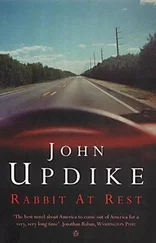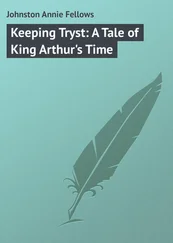It is Charlie who broaches the subject. One day in the cab of the truck, as they pass through an unusually empty piece of northern New Jersey, between an extensive cemetery and a surviving piece of the Meadows-cattails and shiny-leaved reeds rooted in brackish water-he asks, "Something eating you, Madman? You seem quiet lately."
"I am generally quiet, no?"
"Yeah, but this is different. At first it was 'Show me' quiet, now it's more a 'What's up?' kind of quiet."
Ahmad does not have so many friends in the world that he can risk losing one. There is no going back from this juncture, he knows; he has little to go back to. He tells Charlie, "Some days ago, when I was doing deliveries alone, I saw a strange thing. I saw men removing wads of money from that ottoman I delivered to the Shore." "They opened it in front of you?"
"No. I left, and then crept back and looked in the window. Their manner made me suspicious, and curious." "You know what curiosity did to the cat, don't you?" "It killed it. But ignorance can also kill. If I am to deliver, I should know what I am delivering."
"Why so, Ahmad?" Charlie says, almost tenderly. "I saw you as not wanting to know more than you can handle. In truth, ninety-nine percent of the time the furniture you are delivering is just that-furniture."
"But who are that fortunate one percent who win a bonus?" Ahmad feels a tense freedom, now that the juncture is behind them. It is like, he imagines, the release and responsibility a man and a woman feel when they first take off their clothes together. Charlie, too, seems to feel this; his voice sounds lighter, having shed a level of pretense. "The fortunate," he says, "are true believers." "They believe," Ahmad guesses, "in jihad?" "They believe," Charlie carefully restates, "in action. They believe that something can be done. That the Muslim peasant in Mindanao need not starve, that the Bangladeshi child need not drown, that the Egyptian villager need not go blind with schistosomiasis, that the Palestinians need not be strafed by Israeli helicopters, that the faithful need not eat the sand and camel dung of the world while the Great Satan grows fat on sugar and pork and underpriced petroleum. They believe that a billion followers of Islam need not have their eyes and ears and souls corrupted by the poisonous entertainments of Hollywood and a ruthless economic imperialism whose Christian-Jewish God is a decrepit idol, a mere mask concealing the despair of adieists."
"Where does the money come from?" Ahmad asks, when Charlie's words-not so different, after all, from the world-picture that Shaikh Rashid more silkily paints-have run their course. "And what are the recipients to do with these funds?"
"The money comes," Charlie tells him, "from those who love Allah, both within the U.S. and abroad. Think of those four men as seeds placed within the soil, and the money as water to keep the soil moist, so that some day the seeds will split their shells and bloom. Allahu akbar!"
"Does the money," Ahmad persists, "come somehow through Uncle Maurice? His arrival here seems to make a difference, though he disdains the daily workings of the store. And your good father-how much is he part of all this?"
Charlie laughs, indulgently; he is a son who has grown beyond his father but continues to honor him, as Ahmad has done to his own. "Hey, who are you, the CIA? My father is an old-fashioned immigrant, loyal to the system that took him in and let him prosper. If he knew any of what you and I are discussing, he would report us to the FBI."
Ahmad in his new capacity tries a joke: "Who would swiftly mislay the report."
Charlie does not laugh. He says, "These are important secrets that you have extracted from me. They are life-and-death stuff, Madman. I'm wondering right now if I've made a mistake, telling you all this."
Ahmad seeks to minimize what has passed between them.
He realizes that he has swallowed knowledge that cannot be coughed back up. Knowledge is freedom, it said on the front of Central High. Knowledge can also be a prison, with no way out once you're in. "You've made no mistake. You've told me very little. It was not you who led me back to the window to see the money being counted. There could be many explanations for the money. You could have denied knowledge of it, and I would have believed you."
"I could have," Charlie concedes. "Perhaps I should have."
"No. It would have put falsity between us, where there has been trust."
"Then you must tell me this: are you with us?"
"I am with those," Ahmad says slowly, "who are with God."
"O.K. Good enough. Be as silent as God about this. Do not tell your mother. Do not tell your girlfriend."
"I have no girlfriend."
"That's right. I promised to do something about that, didn't I?"
"You said I should get laid."
"Right. I'll work on it."
"Do not, please. It is not yours to work on."
"Friends help each other out," Charlie insists. He reaches over and squeezes the young driver's shoulder, and Ahmad does not entirely like it; it reminds him of Tylenol's bullying grip that time in the high-school hall.
The boy states, with a new-won man's dignity, "One more question, and then I will say nothing until I am spoken to on these matters. Is there a plan developing, with these seeds that are being watered?"
Ahmad knows Charlie's facial expressions so well he does not have to look sideways in the truck to see the man's rubbery lips work around as if exploring the shape of his own teeth, and then heavily exhale in an exaggerated sigh of exasperation. "Like I said, there are always a number of projects under consideration, and how they develop is somewhat hard to predict. What does the Book say, Madman? And the Jews plotted, and God plotted. But of those who plot, God is the best."
"In these plots, will I ever have a part to play?" "You might. Would you like that, kid?" Again, Ahmad feels a juncture being reached, and a gate closing behind him. "I believe I would."
"You believe? You got to do better than that." "As you say, individual events are not easy to predict. But the lines are clear." "The lines?"
"The lines of battle. The armies of Satan versus those of God. As the Book affirms, Idolatry is worse than carnage."
"Right. Right," Charlie agrees, and slaps his thigh as if to wake himself up, there in the passenger's seat. "I like that. Worse than carnage." He is a naturally talkative and humorous man, and it has been hard for him to keep a straight face, talking with Ahmad like two men walking through a cemetery where they may some day lie. "One thing to keep in mind," he adds. "There's an anniversary coming up, in September. And the people who call the shots-our generals, so to speak-have an old-fashioned thing about anniversaries."
Jacob and Teresa have made love and bring the sheets up over their naked bodies. The breeze through her bedroom windows is cool. September is drawing near; single yellow leaves, like isolated sparks, show in the wearying greenery. They both, he reflects after his warm bath in her flesh, could lose a few pounds. Her skin, where it is not freckled, is almost too pale, like that of a plastic doll except that it yields under his thumb, leaving a pink dent slow to erase itself. His shaggy arms and chest pain him with their slack, rumpled look; at home the bathroom mirror shows him the beginnings of puckery pseudo-breasts, and his stomach under its twin black swirls of hair has developed another fold. On his chest, the white hairs have no curl, and stick out like wavery antennae: an old man's hairs.
Terry cuddles against him, her snub nose snuggled into his armpit. His love for her stirs widiin him like the start of nausea.
"Jack?" she breathes.
"What?" He sounds ruder than he had intended.
Читать дальше












